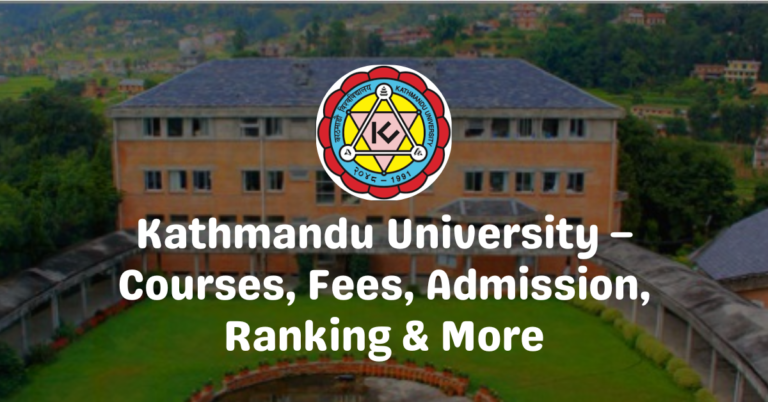Bachelor of Computer Engineering: An Overview
Introduction to Computer Engineering


Bachelor of Computer Engineering is one of the most in-demand undergraduate programs in Nepal, blending the fields of computer science and electrical engineering. It focuses on both software and hardware components of computing systems, making graduates proficient in developing, designing, and maintaining both. As Nepal continues to embrace digital transformation across sectors, the need for skilled computer engineers is more significant than ever.
This program generally spans 4 years and is designed to equip students with technical knowledge in algorithms, programming, hardware systems, AI, cybersecurity, and networking. It’s an ideal choice for students who are passionate about technology and problem-solving. With Nepal moving towards digitization, computer engineers are playing an increasingly vital role in building smart infrastructure, IT systems, and data-driven services.
What sets computer engineering apart is its hybrid nature—students not only learn how to write code but also how to design embedded systems, work with microprocessors, and even develop smart devices. This versatility opens up a wide array of career paths from software development to hardware design and even IT consulting.
Importance of Computer Engineering in Nepal’s Development
Computer Engineering is no longer just a niche field—it’s a cornerstone of national growth and modernization. From government digital services to smart agriculture, and even fintech startups, the influence of computer engineering is everywhere.
As more startups emerge in cities like Kathmandu, Lalitpur, and Pokhara, demand for competent developers and engineers is surging. Nepalese tech companies are already outsourcing services to foreign clients, and graduates in this field can work remotely for global firms. This has not only increased employment but also improved Nepal’s economy through tech exports and foreign currency inflow.
Moreover, the government’s focus on “Digital Nepal Framework” underscores the importance of this field. From building e-governance systems to deploying artificial intelligence in public services, computer engineers are at the center of it all.
This field also plays a vital role in education and research. Universities are beginning to emphasize AI, robotics, and big data—areas in which computer engineers excel. So if you’re looking to make a meaningful impact, choosing Computer Engineering in Nepal is a future-ready decision.
Eligibility and Admission Process
Minimum Academic Requirements
To pursue a Bachelor of Computer Engineering, you need to meet some specific academic qualifications. Most universities require students to complete their +2 (Higher Secondary Education) or equivalent with a strong background in Science. Here’s a quick breakdown of common requirements:
- Completion of +2 Science or A-levels with Physics, Chemistry, and Mathematics.
- Minimum GPA of 2.0 or higher (varies by university).
- At least a C grade in all subjects or equivalent percentage (typically 45% or above).
International boards like A-levels, CBSE, and IB are accepted, provided the student can get their documents attested and equivalency verified by relevant Nepali authorities.
Some universities are more competitive than others, especially those under Tribhuvan University and Kathmandu University. The number of applicants far exceeds the available seats, making entrance exams a crucial part of the process.
Entrance Exams and Selection Criteria
The most crucial step in securing a seat in a Computer Engineering program in Nepal is the entrance exam. Each university conducts its own entrance exam, and your score largely determines where you can study. Here’s how it generally works:
1. Tribhuvan University (TU):
TU’s Institute of Engineering (IOE) conducts a centralized entrance exam. The exam includes subjects like Mathematics, Physics, Chemistry, and English. It’s a computer-based test and highly competitive.
2. Kathmandu University (KU):
KU runs its own admission test that assesses analytical and scientific aptitude. Students must also appear for an interview or group discussion in some cases.
3. Pokhara and Purbanchal Universities:
They have their own set of admission tests but are generally considered slightly easier than TU and KU.
4. Private Colleges:
Many private colleges affiliated with these universities also require the same entrance scores, although they may admit students under quotas or donation schemes as well.
Scoring well in the entrance exam is key. Preparation should begin well in advance, ideally during the last year of high school. Many students also enroll in entrance preparation classes offered in cities like Kathmandu, Lalitpur, and Biratnagar.
Top Colleges Offering Computer Engineering
Tribhuvan University (TU)
TU is the oldest and most prestigious university. Its Institute of Engineering (IOE) runs the Bachelor of Computer Engineering program in several affiliated campuses:
- Pulchowk Campus (Highly competitive)
- Thapathali Campus
- Purwanchal Campus
- Paschimanchal Campus
Pulchowk is the crown jewel, often requiring top ranks in the entrance exam. The curriculum is rigorous and the environment highly competitive. Graduates from TU have an excellent placement record, both locally and abroad.
Kathmandu University (KU)
Located in Dhulikhel, KU is known for its emphasis on research, innovation, and quality education. Their School of Engineering offers a modern and project-based Computer Engineering program.
- Focus on practical learning, real-world projects
- Modern labs and faculty with international experience
- Collaborations with foreign universities for exchange programs
Admission is tough, but the academic environment is nurturing, and the scope for innovation is huge.
Pokhara University (PU)
PU operates on a semester system and offers Computer Engineering through its School of Engineering in Pokhara and several affiliated private colleges like:
- Gandaki College of Engineering and Science
- Lumbini Engineering College
- Nepal College of Information Technology (NCIT)
PU’s curriculum is industry-oriented and updated more frequently than TU’s. It also allows for internships and cooperative programs with companies.
Purbanchal University (PoU)
Based in Biratnagar, PoU also offers Bachelor of Computer Engineering through affiliated colleges across eastern Nepal. Some notable colleges include:
- College of Information Technology and Engineering
- Himalaya College of Engineering
While not as competitive as TU or KU, PoU-affiliated colleges offer opportunities to students who couldn’t secure seats in the more elite campuses.
Private Colleges Affiliated with Universities
Many private colleges in Kathmandu Valley and other cities offer the Computer Engineering program affiliated with TU, PU, or PoU. Some of the top names include:
- Kantipur Engineering College
- Kathmandu Engineering College (KEC)
- Advanced College of Engineering and Management
- Everest Engineering College
These colleges often provide flexible admission policies, better infrastructure, and modern teaching methods, although they are relatively more expensive.
Course Structure and Curriculum
Subjects Covered in 4 Years
The Bachelor of Computer Engineering curriculum in Nepal is designed to offer a perfect balance between theory and practical knowledge. Across all major universities—TU, KU, PU, and PoU—the course is divided into 8 semesters over 4 years, each tackling different layers of computing, engineering, and analytical subjects.
Year-wise Breakdown:
- First Year:
Focuses on basic engineering foundations such as Engineering Mathematics, Physics, Chemistry, Engineering Drawing, and Computer Programming. Students are introduced to C/C++ programming and basics of electronics. - Second Year:
This year dives deeper into Object-Oriented Programming, Data Structures & Algorithms, Discrete Mathematics, Digital Logic, and Microprocessors. These subjects form the backbone of software and hardware understanding. - Third Year:
More advanced topics like Operating Systems, Computer Architecture, Database Management Systems, and Computer Networks are introduced. Students also start working on mini projects. - Fourth Year:
The final year covers electives, Artificial Intelligence, Software Engineering, and Distributed Systems. Students undertake a capstone project or thesis which is often a real-world software/hardware solution.
Common Core Subjects:
- Programming in C/C++/Java/Python
- Digital Logic Design
- Data Structures & Algorithms
- Database Systems
- Operating Systems
- Software Engineering
- Computer Networks
- Web Technologies
- Microprocessors
- Artificial Intelligence
The curriculum also includes communication skills, engineering ethics, project management, and entrepreneurship to prepare students for leadership roles.
Electives and Specializations Available
In the final semesters, students can choose electives or focus areas based on their interest or career goals. These electives vary slightly depending on the university but generally include:
- Machine Learning & AI
- Mobile App Development
- Data Science & Big Data Analytics
- Cloud Computing
- Embedded Systems
- Internet of Things (IoT)
- Cybersecurity
- Robotics
- Natural Language Processing (NLP)
Electives allow students to explore cutting-edge technologies. For instance, if a student is passionate about robotics, they can take advanced courses in control systems, robotics, and real-time computing.
Some universities also allow students to conduct research or publish papers during their final year, especially KU and TU.
Practical and Project Work
Theory without practice is useless—Nepalese universities understand this. That’s why practical labs and project-based learning are mandatory components of the Computer Engineering program.
Key Practical Areas Include:
- Programming labs for each language (C, Java, Python, etc.)
- Electronics and digital logic labs
- Database design and SQL labs
- Microprocessor interfacing labs
- Web and mobile app development workshops
- Networking and cybersecurity labs
Capstone Projects:
In the final year, students must work in teams to solve real-world problems. These projects are often the highlight of the degree and cover fields like:
- Smart automation (IoT)
- Android/iOS apps
- Web platforms
- Machine Learning models
- Blockchain-based systems
- Robotics and control systems
Students also present their projects in front of faculty panels and industry experts. Some projects even receive funding or get picked up by startups for further development.
Fee Structure and Scholarships
Average Tuition Costs
The fee structure for a Bachelor of Computer Engineering varies significantly depending on the type of college and the university it is affiliated with.
Here’s a general estimate of tuition costs across different institutions:
| University/College Type | Total 4-Year Fees (NPR) |
|---|---|
| Tribhuvan University (Public Campuses) | 2 – 4 Lakhs |
| TU-Affiliated Private Colleges | 6 – 10 Lakhs |
| Kathmandu University | 7 – 12 Lakhs |
| Pokhara University Colleges | 5 – 9 Lakhs |
| Purbanchal University Colleges | 4 – 8 Lakhs |
Additional Costs May Include:
- Admission/Registration Fees
- Lab and Practical Fees
- Exam Fees
- Books and Stationery
- Hostel/Transportation (if required)
Some colleges allow installment payments, and a few offer early-bird discounts or fee waivers based on entrance scores.
Scholarships by Universities and Government
To support academically bright and financially needy students, several scholarship schemes are available:
1. Tribhuvan University (IOE Scholarship):
- Full scholarship for top entrance scorers (typically top 10%)
- Reserved quotas for marginalized communities, women, and rural applicants
- Partial scholarships based on academic merit
2. Kathmandu University:
- Need-based and merit-based scholarships
- Opportunities for research grants and assistantships
3. Pokhara & Purbanchal Universities:
- Scholarships for female students, Dalits, Janajatis, and remote area applicants
- Entrance toppers receive fee waivers up to 100%
4. Government Scholarships:
- MoEST (Ministry of Education, Science and Technology) provides annual scholarships for students from underprivileged backgrounds.
- Lok Sewa programs and educational trust scholarships
Additionally, some private colleges offer in-house scholarships for top performers each semester or waive admission fees for high scorers.
Tip: Apply early and always check the university website for the latest scholarship announcements.
Career Opportunities After Bachelor of Computer Engineering
Job Prospects and Abroad
A Bachelor of Computer Engineering opens up a world of career possibilities. Whether you want to work in Nepal or venture abroad, this degree is a launchpad to high-demand tech jobs. The growing startup ecosystem, digital transformation initiatives, and IT outsourcing trends are rapidly expanding opportunities for computer engineers.
In Nepal, graduates can work in:
- Software development companies
- IT firms and system integrators
- Banks and financial institutions (for software, cybersecurity, and networking)
- Telecom companies
- Government and public IT projects (like Nagarik App, e-governance)
- Academia and research centers
- NGOs and INGOs working in tech and data-driven sectors
Popular Job Titles Include:
- Software Developer
- Backend/Frontend Developer
- Web Developer
- Mobile App Developer
- Network Engineer
- Database Administrator
- AI/ML Engineer
- Cybersecurity Analyst
- DevOps Engineer
- Embedded Systems Engineer
- QA Tester
- Cloud Engineer
Abroad, Nepali graduates with a BE in Computer Engineering are in high demand, especially in:
- USA, Canada, Australia, and European countries
- Gulf nations like UAE and Qatar (for telecom and networking)
- Japan and South Korea (especially for embedded systems and AI)
Many graduates also pursue remote freelancing via platforms like Upwork, Fiverr, and Toptal, earning in USD while living.
Recruiters Prefer Candidates With:
- Hands-on experience through internships
- Good command of English and communication skills
- Certification in tools/languages (e.g., AWS, Python, Java, Linux, Cisco)
- A portfolio of projects (especially on GitHub)
The tech world values skill over degrees—so students who continuously upskill with the latest tech (React, Node.js, AI, Docker, etc.) are more likely to be hired faster and earn more.
Freelancing and Remote Work Opportunities
One of the biggest perks of having a Computer Engineering degree is the ability to freelance or work remotely. This allows you to work from anywhere—be it a cozy café in Pokhara or your room in Kathmandu—and earn global-level salaries.
Popular Freelance Roles for Computer Engineers:
- Full-stack Developer
- WordPress Developer
- Mobile App Developer (iOS/Android)
- UI/UX Designer
- Data Analyst
- Automation Script Developer
- Software Tester
Platforms like:
- Upwork
- Freelancer
- Fiverr
- PeoplePerHour
- Turing
- Remote OK
are goldmines for freelance gigs.
Some even secure long-term contracts from international companies looking to outsource their tech needs. With the rise of remote work due to COVID-19, many Nepali developers have landed jobs with companies in the U.S., Canada, and Europe.
Average Freelance Earnings:
- Beginner: $10 – $20/hour
- Intermediate: $25 – $40/hour
- Expert: $50+/hour
With consistent work, a freelance computer engineer can earn over NPR 1 lakh per month easily, sometimes even more than traditional office jobs.
Higher Education and Certifications
Options for Postgraduate Studies
If you wish to deepen your expertise after your bachelor’s, numerous postgraduate options await:
In Nepal:
- Master in Computer Engineering (MCE)
- Master of Science in Information and Communication Engineering (MSICE)
- Master of Information Technology (MIT)
- Master in Data Science (offered by few institutions)
- MBA in IT (for management-oriented engineers)
Universities like TU, KU, PU, and PoU offer M.Sc. level programs. The entrance process is competitive, but graduates often get teaching positions, research roles, or senior tech jobs.
Abroad:
Many students go for Master’s programs in:
- Computer Science
- Software Engineering
- Artificial Intelligence
- Cybersecurity
- Robotics
- Data Science
Countries like the USA, Canada, Australia, Germany, and Finland offer scholarships and assistantships to deserving Nepali students. Getting into programs abroad usually requires:
- Good GPA (minimum 2.75 or higher)
- Strong SOP (Statement of Purpose)
- Letters of recommendation
- IELTS/TOEFL and GRE scores (for US universities)
A master’s degree abroad not only enhances your academic credentials but also opens up pathways to permanent residency or high-paying jobs.
Recommended Certifications and Online Courses
In today’s fast-changing tech world, a degree alone isn’t enough. Certifications and short online courses show employers that you’re serious about learning and capable of handling new tech.
Top Certifications for Computer Engineers:
- AWS Certified Developer/Architect
- Google Associate Cloud Engineer
- Cisco CCNA/CCNP (for networking)
- Certified Ethical Hacker (CEH)
- CompTIA Security+
- Microsoft Certified Azure Fundamentals
- Oracle Certified Java Programmer
- Red Hat Certified System Administrator
Best Platforms for Online Learning:
- Coursera
- edX
- Udemy
- LinkedIn Learning
- MIT OpenCourseWare
- freeCodeCamp
- Harvard CS50 (free and world-class)
These platforms offer courses with certificates, projects, and real-world case studies. You can learn Python, React, AI, blockchain, and more at your own pace.
Challenges Faced by Computer Engineering Students
Infrastructure and Resource Gaps
Despite the growing demand and interest in Computer Engineering, students in Nepal often face several challenges:
1. Outdated Curriculum:
Some public universities still follow a syllabus that doesn’t reflect the latest industry trends (e.g., blockchain, AI, cloud). While some private colleges have updated programs, there’s still a gap compared to global standards.
2. Limited Lab Resources:
Many colleges, especially outside Kathmandu Valley, lack modern labs and sufficient hardware for hands-on practice. Students often rely on personal laptops or virtual labs.
3. Shortage of Qualified Instructors:
The brain drain has led to a shortage of experienced lecturers. Many faculties are fresh graduates or part-time professionals juggling multiple jobs.
4. Internet and Tech Access:
Though improving, not all students have stable internet for online learning or coding practice. During the pandemic, many rural students struggled to attend virtual classes.
5. Lack of Industry Exposure:
Internship opportunities are limited unless you’re in Kathmandu. Some colleges don’t even mandate industrial training, which weakens employability.
Despite these setbacks, students who are proactive, self-learn, and build projects can still excel and find great opportunities. The tech community in Nepal is very supportive, with active forums, hackathons, and coding bootcamps happening more frequently.
Emerging Trends in Computer Engineering
Technologies Shaping the Future
Computer Engineering is a dynamic field, constantly evolving with new technologies and innovations. As Nepal aligns itself with global digital trends, staying updated on these emerging technologies becomes crucial for every aspiring computer engineer.
1. Artificial Intelligence & Machine Learning (AI/ML):
AI is no longer a buzzword—it’s the future. From chatbots and recommendation engines to self-driving cars and smart assistants, AI and ML are becoming mainstream. Nepali students are now exploring projects in image recognition, NLP (Natural Language Processing), and predictive analytics using TensorFlow, PyTorch, and Scikit-learn.
2. Internet of Things (IoT):
IoT connects the physical world to the internet. In Nepal, IoT is gaining ground in smart farming, weather monitoring, and automation. Students are developing IoT-based irrigation systems and smart home projects using Arduino, Raspberry Pi, and ESP8266.
3. Cybersecurity:
With the rise of digital platforms comes the threat of cyberattacks. Ethical hacking, data protection, and secure app development are now integral to Computer Engineering. Institutions are adding cybersecurity modules and certifications like CEH and CISSP to their curriculum.
4. Blockchain & Web 3.0:
Nepalese developers are slowly entering the blockchain space. Projects involving cryptocurrency wallets, smart contracts (using Solidity), and NFTs are becoming student favorites. While regulation is still catching up, tech innovation continues.
5. Cloud Computing:
From AWS to Azure and Google Cloud, cloud platforms are redefining how software is built and deployed. Nepali IT firms are already moving to the cloud. Students are encouraged to learn Docker, Kubernetes, and serverless architecture.
6. Data Science and Big Data:
The world runs on data, and data scientists are its analysts. Python, R, Power BI, and Tableau are in high demand. Final year projects on data visualization and analytics are becoming more common.
By aligning with these trends, students not only future-proof their careers but also gain a competitive edge in job markets worldwide.
Student Life and Campus Experience
What to Expect as a Computer Engineering Student
Studying Computer Engineering in Nepal isn’t just about attending lectures—it’s a journey that combines academics, creativity, social experiences, and personal growth.
1. Academic Life:
Expect a rigorous schedule filled with lectures, labs, assignments, and exams. The first two years are heavy on core subjects like math, physics, and basic computing, while the latter years become more technical and project-based. Group projects, coding competitions, and hackathons are common.
2. Coding Culture:
Coding is at the heart of Computer Engineering. Students often spend long nights debugging code, solving problems on platforms like LeetCode, HackerRank, and Codeforces, or building passion projects.
3. Campus Life:
Most engineering campuses—especially TU’s Pulchowk, KU’s Dhulikhel, and PU’s Pokhara campuses—offer a blend of academic focus and vibrant student life. Cultural events, tech fests (like LOCUS, Yantra, HackFest), and sports tournaments keep the calendar full.
4. Clubs and Communities:
Students are encouraged to join:
- Robotics Club
- Computer Club
- ACM or IEEE Student Chapters
- Women in Tech Nepal
- Google Developer Student Clubs (GDSC)
These groups organize workshops, seminars, and even national-level competitions.
5. Internship & Industry Linkages:
In the third or fourth year, students are expected to complete internships. While some colleges assist in placements, many students take initiative to approach software companies or participate in startup programs like “Idea Studio Nepal” or “Startup Nepal.”
6. Social Media and Online Learning:
YouTube, Reddit, GitHub, and Discord groups are now integral to the student experience. Whether it’s debugging a bug, preparing for a hackathon, or exploring career paths, online communities provide constant support.
The experience is challenging but immensely rewarding. Friendships built through group projects, the pride of completing a complex software, and the excitement of deploying your first app are moments that define this journey.
Why Choose Computer Engineering?
Unique Benefits and Local Relevance
Nepal might not yet be Silicon Valley, but studying Computer Engineering here offers several unique advantages that make it a strong choice for tech-savvy students.
1. Affordable Yet High-Quality Education:
Compared to universities abroad, tuition fees in Nepal are very affordable, especially in public institutions like TU and KU. Despite the cost, many programs maintain a strong academic standard and increasingly integrate global best practices.
2. Fast-Growing Tech Ecosystem:
Kathmandu is emerging as a mini tech hub, with startups like Fusemachines, Deerwalk, and Yomari leading innovation. These firms hire fresh graduates and also offer internships, mentorship, and freelance gigs.
3. Remote Work Opportunities:
Due to Nepal’s favorable time zone and growing internet penetration, students can access remote work and freelance projects from across the world—earning in USD without leaving home.
4. Strong Community Support:
From Facebook groups like “Nepali Programmers” to platforms like TechSansar and events like “Tech Camp Nepal,” there’s a robust community that supports newcomers with resources, mentorship, and networking.
5. Freedom to Innovate:
The regulatory environment in Nepal is still developing. This gives students more freedom to experiment with blockchain, fintech, and AI projects compared to countries with stricter compliance.
6. Opportunity to Make a Difference:
While Silicon Valley builds tools for convenience, Nepal offers a chance to solve real problems—like making education more accessible, improving healthcare through AI, or developing disaster response systems using IoT.
Computer Engineering in Nepal isn’t just a degree—it’s a mission. It empowers students to innovate locally while thinking globally.
Conclusion
Choosing to pursue a Bachelor of Computer Engineering in Nepal is more than an academic decision—it’s a commitment to becoming part of a rapidly evolving digital revolution. With a rich blend of theoretical knowledge, hands-on training, growing industry demand, and affordable education, Nepal offers a fertile ground for tech enthusiasts to thrive.
The journey may come with challenges—outdated curricula, limited infrastructure, and fierce competition—but the rewards far outweigh the hurdles. Whether you dream of becoming a software engineer, building the next big startup, pursuing research, or working for a global tech giant from the comfort of your home, this degree paves the way.
With dedication, curiosity, and a learning mindset, you’ll not only succeed—you’ll lead.
FAQs
1. Is Computer Engineering better than Computer Science?
While both fields overlap, Computer Engineering leans more towards hardware and embedded systems along with software development. It’s ideal for students who want hands-on knowledge of both.
2. Can I study Computer Engineering without Math in +2?
No. Mathematics is a mandatory subject in your higher secondary education to be eligible for Computer Engineering programs.
3. What programming languages are taught in Nepali engineering colleges?
Primarily C, C++, Java, Python, and sometimes PHP and JavaScript. Advanced electives may include languages like Go, Rust, and R.
4. How much can a Computer Engineer earn?
Freshers usually start with NPR 25,000–40,000/month. With experience, the salary can reach NPR 1 lakh or more. Freelancers can earn even higher depending on skill and clients.
5. Are there any female-focused scholarships in Computer Engineering?
Yes. Most universities and private colleges offer special scholarships and quotas for female students to promote gender inclusion in STEM.







